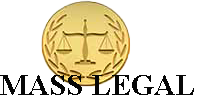Civil Litigation
Civil litigation in England and Wales involves resolving disputes between individuals, businesses, or other organizations through the court system. Civil Litigation covers a broad range of legal issues, including contract disputes, personal injury claims, property disputes, employment matters, debt recovery cases and more. Mass Legal support and represent its clients as it concerns the civil litigation process in England and Wales which involves:
Pre-action Protocol: Before commencing formal litigation, Mass Legal ensure that its clients follow pre-action protocols. These protocols which are in the CPR set out steps to encourage early exchange of information, exploration of settlement options, and narrowing of issues in dispute.
Issuing the Claim: If matters cannot be resolved through negotiation or alternative dispute resolution (ADR), Mass Legal will under instructions from its client (the party bringing the claim) issue proceedings by filing a claim form at the appropriate court. The claim form sets out the details of the claim, including the parties involved, the facts of the case, and the remedy sought.
Serving the Claim: After issuing the claim, for its client (the claimant) Mass Legal will serve a copy of the claim form and particulars of claim on the defendant (the party against whom the claim is made). The defendant then has a specified period of time to respond to the claim by filing a defense.
Case Management: Once the defense is filed, the court will typically manage the case through a series of case management conferences or hearings. The court may give directions for the progression of the case, including disclosure of documents, exchange of witness statements, and preparation for trial.
Disclosure: Both parties are required to disclose relevant documents that are in their possession, custody, or control. This includes documents that support their case or adversely affect another party’s case.
Witness Statements: Parties may exchange witness statements, which are written statements of evidence from witnesses who will be called to testify at trial. Witness statements help to clarify the issues in dispute and the evidence to be relied upon.
Trial: If the case does not settle, it will proceed to trial before a judge. At trial, Mass Legal will present the case of its client through witness testimony, documentary evidence, and legal argument. The judge then makes a decision based on the evidence presented after the other party have presented its case.
Judgment: After considering the evidence and legal arguments, the judge delivers a judgment, which sets out the decision of the court on the issues in dispute and any remedies or orders granted.
Appeals: Parties may have the right to appeal against a judgment or decision of the court to a higher court, such as the Court of Appeal or the Supreme Court, on certain grounds.
Civil litigation in England and Wales can be complex and time-consuming, but it provides a means for parties to resolve their disputes through a formal legal process with the assistance of the courts.
Get in touch on our Contact us Page.
Talk to us
Have any questions?
We are always open to talk about your legal needs and how we can help you.
